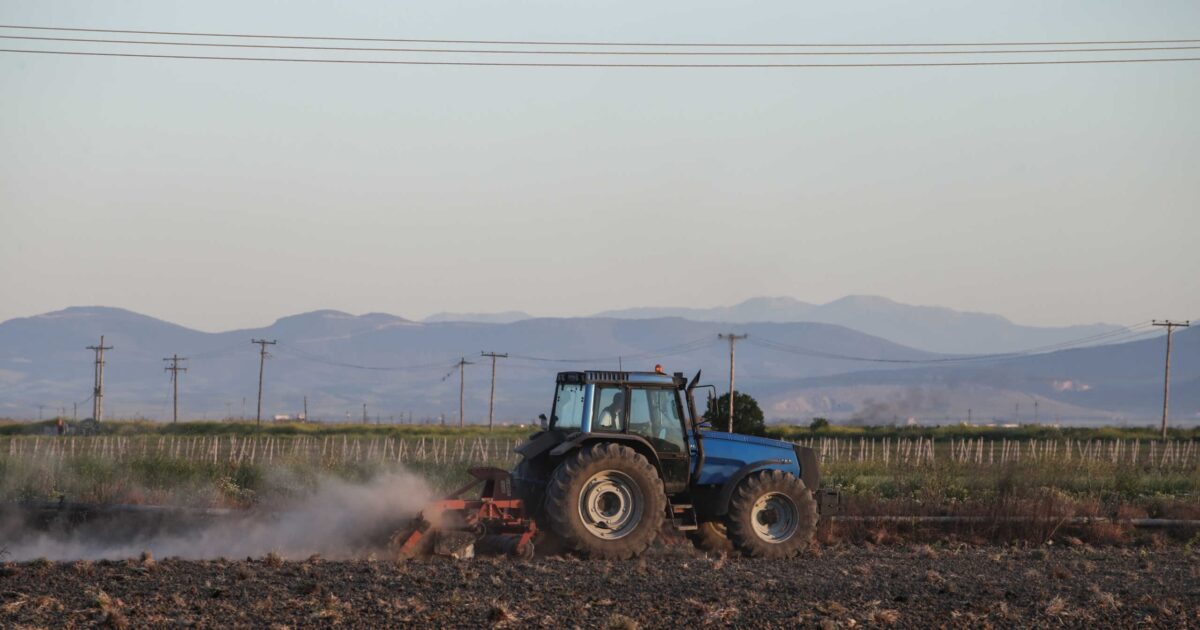Her recent decision Commissionwhich relates to corrections to the EKET and EAFA funds for 17 Member States, including Greece, with a total budget correction of 415.051.036.74 euros, according to its circles Ministry of Rural Development.
The checks of the Commission that led to sanctions start in 2009 and reach up to 2023 and these from 2016 to 2023. That is, they cover the terms of governments of different political direction, say from the Rural Development Ministry. Consequently, no liability may be attributed to a single period or person. The issue has raised questions and misconceptions.
So it is crucial to clarify the following:
1. These are not producers scams but administrative failures
This amount relates to administrative fines imposed due to incomplete or improper implementation of European regulations governing the granting of Community aid. It is not related to cases of deception or fraud by producers. It is mainly concerned with administrative weaknesses in the proper implementation of European regulations due to the lack of mechanism and staff, on the part of OPEKEPE and on the part of the Greek state (absence of land and pasture maps).
2. There is a clear distinction between administrative fines and fraudulent acts
The European Union separates the fiscal corrections (administrative fines) from the deception of fraud, and so is the Greek administration. In the first case, the State returns the funds with specific mechanisms (fiscal correction, offsetting with future disbursements, state budget). In the latter case, the amounts shall be recovered by the convicts after the completion of the criminal proceedings, and criminal proceedings are also brought. Cases of fraud against the Agency by producers are examined by the European Public Prosecutor’s Office and fall under the responsibility of justice. These cases are being investigated and in addition to criminal liability will be returned and illegal aid will be reimbursed.
3. Such corrections are not phenomenon exclusively Greek
Greece is not the only country that has corrections. The same decision of the European Commission imposes comprehensive fiscal corrections on 17 Member States, indicating that this is a common EU fiscal supervision process and not an individual Greek phenomenon. This does not mean, of course, that there should be no corrections. The opposite. And for this reason, the Agency has been put under the supervision of the Ministry of Environment and Physical Planning last year to implement a plan to fully consolidate its functional needs, in order to perform its work with greater transparency and justice.
4. Corrections relate to two distinct political periods
The overall picture of the issue cannot be cut off from the political context in which the violations emerged. Corrections are:
- Period to the 2019 elections: where procedures were implemented incomplete and unsubstantiated.
- Period from 2020 until today: in which, due to institutional weaknesses and lack of critical infrastructure (such as the Land Registry, the forests and
Local Maps, the Functional Veterinary Base), the implementation of the same procedures framework continued (to avoid interruption of aid), with the result that the European Commission considers even the improvement interventions attempted by recent administrations.
5. Action Plan applied from 11/9/2024 ensures European compliance
For the first time, an integrated action plan was adopted in agreement with the European Commission with 45 targeted interventions to reorganize OPECEPE. Its implementation began on September 11, 2024- when the Organization was under the supervision of the HYPAT- and its full implementation ensures OPECEPE’s compliance with European rules of operation, control and transparency.
6. OPECEPE’s submission to AADE enhances transparency and reliability
The decision to join OPEKEPE under the supervision of the Independent Public Revenue Authority (AADE) is a strategic choice aimed at enhancing institutional independence, accountability and transparency in managing Community aid.
7. Aim: Recovering credibility and enhance the trust of producers
The main issue remains to restore OPEKEPE’s credibility, so that it is a reliable, effective and fair mechanism for all producers in the country. The confidence of the rural world is decisive and only through administrative efficiency, transparency and constant compliance with the European framework can be guaranteed.
Inference
The fine of EUR 415 million is not about fraud but administrative failures. It is not unique to Greece, as it concerns 17 countries, and is the result of systemic problems that have not been treated over time. The Action Plan in 2024, the subordination of the AADE and the gradual upgrading of OPEKEPE infrastructure, as well as its subordination to AADE, show the government’s willingness to change and safeguard legality, with the ultimate goal of a modern, transparent and reliable organization for Greek producers.
The political leadership of the Ministry of Environment and Physical Planning is managing the crisis in an institutional and methodical way. Instead of postponing responsibilities or underestimating the observations of the European authorities, it has approached the issue with soberness, emphasis on transparency and documented defense strategy of the country. At the same time it takes all those measures necessary for the full cleansing of the organization, as the real question- beyond the legal responsibilities to be attributed- is not who is more or less responsible for the past, but how to ensure the proper and fair functioning of the organization and there will be no new errors.
We remind you that OPECEPE, with the aid pays (over 3 billion per year with 2.3 of them being direct aid to producers and other infrastructure projects), affects the whole life of Greek society, enhancing social cohesion.
